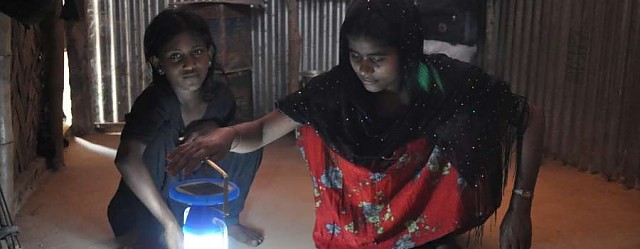Home > What We Do > Environment and Climate Change > Energy
Energy

Power as Protection
Access to safe and sustainable energy is a basic need for everyone. Without it, the forcibly displaced - particularly women and children - may be exposed to health and safety risks and have less time for education, livelihoods, social and other activities. UNHCR is committed to addressing the energy needs of refugees and, to this end, in 2014 launched a global strategy for Safe Access to Fuels and Energy (SAFE).
The SAFE strategy principally addresses technology and programme management - and their interaction. Access to energy is a global challenge, and the strategy provides guidance on a holistic approach to this challenge in humanitarian settings, including consultation with refugee and host communities. It stresses the need for innovative approaches and culturally appropriate technologies, including clean or fuel-efficient cookers, alternative and sustainable fuels, and solar-powered lighting.
UNHCR believes refugees should play an active role in energy planning and management. Tailoring energy programmes to refugees' needs is expected to make a considerable difference in their lives and livelihoods.
Improving access to a clean and sustainable source of energy can enhance self-reliance, ensure education under harsh conditions and provide safety, health and protection of refugees. For example, it enables children to do homework at night and provides the electricity needed to run computers in schools and training centres. This in turn enables refugees to learn new skills or connects them to the global economy.
Energy can also power health centres and ensure that life-saving medication can be refrigerated. Street lighting allows people to move around camps in greater safety at night, particularly women and girls, while solar-powered lamps let people work, cook, study, socialize and generally continue with their lives after the sun has gone down without compromising their safety or health. With a clean, sustainable fuel, or fuel-efficient technologies, refugees can cook meals and avert the malnutrition and ill-health that may occur when using open fires.



